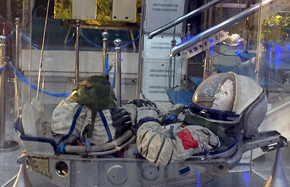Ever expanding Chinese rail network boosts German 'China city'
DUISBURG - The city of Duisburg, Germany's biggest inland port, is on one end of the Chongqing-Xinjiang-Europe rail line, which opened in 2011 from the Chinese southwest city of Chongqing.
In recent years, more and more trains operated by the China Railway Express (CRE) from Zhengzhou, Wuhan, Suzhou, Yiwu and other Chinese cities are arriving here.
It takes only 13 days for goods to arrive in Duisburg from Chongqing by rail, 30 days less than by sea, and at a fifth of the cost of air freight.
According to industry experts, the China-Europe freight train services have been providing solutions for the international logistics industry and promoting international trade ties and economic development along the Belt and Road Initiative countries.
CRE conducts freight transportation between China and Europe. The trains bring unlimited business opportunity and bring Duisburg and China much closer, Mayor of Duisburg Soeren Link told Xinhua in a written interview.
More and more frequently, Duisburg is called as "China City", he added.
Thriving city
In 2014, Link witnessed the arrival of China-Europe trains at the Duisburg Intermodal Terminal (DIT), together with Chinese leaders. At that time, there were three trains operating to and from Duisburg and Chongqing every week. Today, the number has increased to over 25 per week.
Daniel Thomas, of DIT Duisburg Intermodal Terminal, said that among them, 17 trains are westbound (from China to Europe), while another eight are eastbound.
According to data from consultants GFW Duisburg, the number of Chinese businesses has grown steadily since 2014. More than 100 Chinese companies have so far settled here. At the same time, around 50,000 import and export containers were transported by CRE trains in 2016, almost four times of the amount in 2014.
"These numbers show the Belt and Road Initiative has brought many economic development opportunities to Duisburg," Link said.
The Belt and Road Initiative, proposed by China in 2013, comprises the Silk Road Economic Belt and the 21st Century Maritime Silk Road. It aims to build a trade, investment and infrastructure network connecting Asia with Europe and Africa along the ancient trade routes.
Changing times
As CRE business continues to flourish, DIT management is considering how to improve efficiency as business changes over the years.
Eight years ago, DIT terminal were using waterways and trains much more frequently than trucking. Now with CRE, the company needs more trucking services, Thomas said, adding they need to truck 10 containers per week.
"Our trucking service has to change. We need more drivers who are willing to drive long distance," Thomas continued.
In addition, DIT needs to deal with long-standing empty containers because of the imbalance between eastbound and westbound trains.
Shan Jing, business development manager of Far East Land Bridge Ltd (FELB), said that custom clearance has become more efficient and FELB, as a railway operator, has also received support from local Chinese governments because of the Belt and Road Initiative.
"The Belt and Road Initiative supplies new development opportunities. It improves transit efficiency and helps to enlarge our service portfolio," Shan added.
Improving processes
So far, most CRE trains were mainly to and from Germany via the Polish village of Mataszewicze, which could lead to congestion and further affect the punctuality of the trains.
All sides are trying their best to overcome the logistical challenges, which sometimes impact clients.
Shan advised improving the network and creating direct connections between EU borders and terminals in other countries. He believed this would create new cargo options and reduce congestion in some main terminals.
"The issue should be dealt with a development perspective. CRE is always growing and expanding. There are many possibilities considering the change of requirements from customers and the market. CRE will definitely continue developing its potential," Shan said.
Thomas is also optimistic about the future. "In general, I think there is a bright future for CRE trains as an alternative for deep-sea transport and air freight."
Link said that Chinese investment, and the jobs and economic vitality it brings, are welcome in Duisburg.
"I'm very glad to see that Duisburg is marked on the strategic map of the Belt and Road Initiative. The city will be a model for German-Sino cooperation," Link said.

























